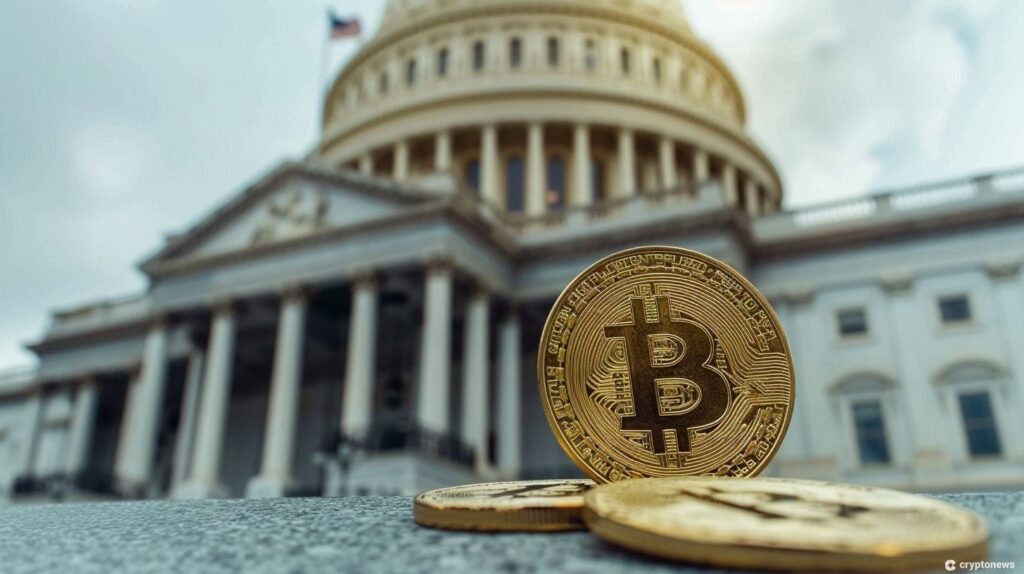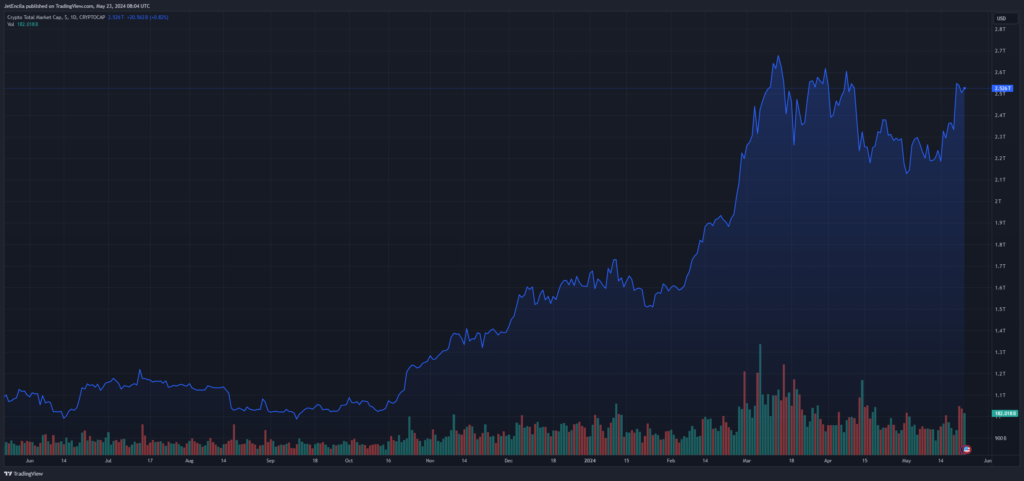The US House passed the FIT21 Act with a 279-136 vote, establishing a regulatory framework for digital assets.

The US House of Representatives approved the Financial Innovation and Technology for the 21st Century Act (FIT21) by a resounding 279 to 136 vote. The bill, which the cryptocurrency industry views as a significant victory, seeks to establish a long-awaited regulatory framework for digital assets in the United States.
An improbable source of support for FIT21 was former House Speaker Nancy Pelosi. Pelosi advocated for the measure, describing it as a “bumping first step” toward regulating the burgeoning cryptocurrency industry, which defied expectations.
This unprecedented support from both parties—71 Democrats and 208 Republicans—signifies a watershed moment in the industry’s history.
However, champagne corks will likely remain blown for the time being. Senate opposition to the measure is considerably more formidable, given that crypto regulation is still uncharted territory.
Although there is cause for optimism due to the recent inclination in the House towards support for cryptocurrencies, persuading the Senate and the Biden administration will be a formidable challenge.
The White House and the SEC have both expressed concern regarding FIT21. Gary Gensler, chairman of the SEC, argues that the current law does not contain adequate consumer protection provisions and that existing regulations can be applied to cryptocurrencies.
Reflecting these apprehensions, the White House advocated for a framework predicated on “existing authorities” and a more comprehensive strategy. Even more, President Biden has issued a veto threat against the bill in its current form.

With the ratification of FIT21, a turning point has been reached in the ongoing saga of US cryptocurrency regulation. For more than a decade, a grey area has surrounded the industry, impeded investor confidence and innovation.
Advocates of FIT21 contend that the legislation will furnish the considerably required precision, enabling enterprises to function with enhanced assurance.
But regulators continue to exercise caution. Their top priority is consumer protection against the inherent dangers of cryptocurrencies, including volatility and potential fraud. They also contend that a more stringent regulatory structure is required to deter money laundering and other illegal activities.
The future of FIT21 remains uncertain. The Senate has the authority to substantially modify the law, potentially incorporating more stringent consumer safeguards or even eliminating it entirely. Legislators, regulators, and the White House will rely heavily on negotiations to determine the ultimate form of cryptocurrency regulation in the United States.
Efforts to establish a transparent regulatory framework for cryptocurrencies are still ongoing. Due to the firm positions held by both parties, the upcoming months may be characterized by vigorous deliberation, compromise, or even gridlock.
Given the transformative capacity of cryptocurrencies, the result of this conflict will carry substantial ramifications for businesses, investors, and the very future of currency.
